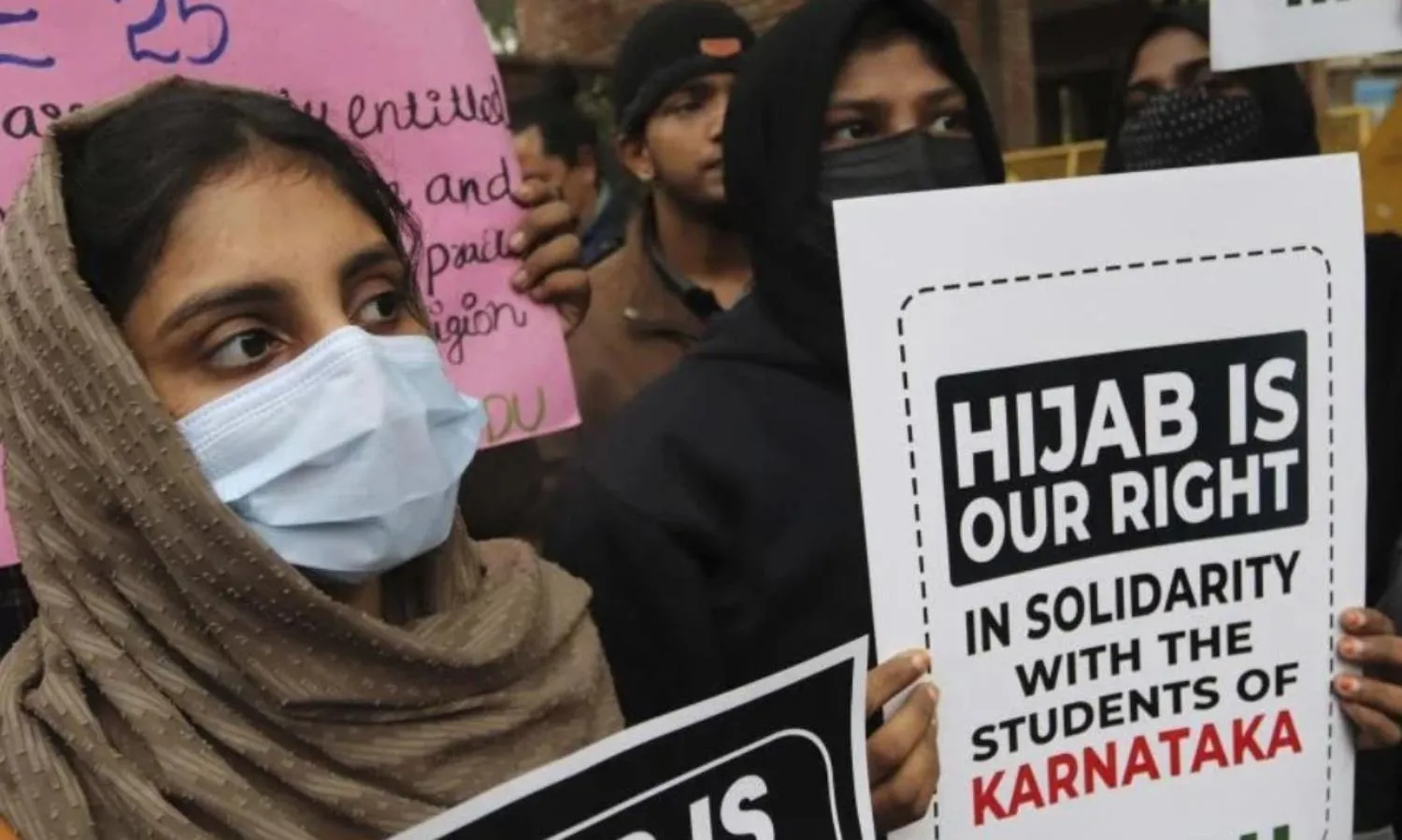'This Verdict Was Totally Unexpected': Karnataka HC Upholds Ban on Wearing Hijab
'This has been our practice for years. We cannot give up our faith"

CHENNAI: The Karnataka High Court today upheld the state's ban on wearing hijabs in classrooms, saying it is not an essential part of Islam. The verdict comes after a marathon eleven-day hearing which started on February 11 and lasted till February 25, after which the HC decided to reserve its verdict.
The petitioners, Muslim girls from various colleges in Karnataka had approached the court after they were denied permission to enter the classrooms with their hijabs on. The petitioners also challenged a government order dated February 5 in which all clothes affecting law and order were banned and powers were conferred to the College Development Committees to prescribe uniforms. According to the order, students had to adhere to dress codes prescribed by the government in government schools, dress codes prescribes by the school management in private schools, dress codes prescribed by the College Development Committee or College Supervision Committee in Pre–University colleges that come within the jurisdiction of the Department of the Pre–University Education, and wherever no dress code was prescribed, such attire that would accord with ‘equality and integrity’ and would not disrupt the ‘public order’.
As the hearing began on February 11, the petitioners counsel argued that the practice of wearing hijabs was guaranteed under the right to freedom of religion provided in the Indian constitution and that the state had no power to ban it. They also contended that proscribing hijab in the educational institutions apart from offending women’s autonomy is violative of Article 14 in as much as the same amounts to ‘gender–based’ discrimination which Article 15 does not permit. "It also violates right to education since entry of students with hijab to the institution is interdicted. The government and the schools should promote plurality, not uniformity or homogeneity but heterogeneity in all aspects of lives," they argued.
However, the government, represented by the Attorney General argued that the practice of wearing hijabs was not an essential practice of Islam and couldn't be protected under the freedom of religion clause.
The three-member bench headed by Chief Justice Ritu Raj Aswathi said, "We are of the considered opinion that wearing of hijab by Muslim women does not form a part of essential religious practice." The bench also held that the requirement of uniform is a reasonable restriction on the fundamental right to freedom of expression under Article 19(1)(a). It also said that the government has the power to pass the order and no case was made out for its invalidation.
Meanwhile, Muslim students across the state are expressing their disappointed over the verdict. Fathima (name changed), a student who was banned from entering the classroom with her hijab on says, "This verdict was totally unexpected. We are deeply disappointed. We will now approach the Supreme court. Until then, we will not go to college. How can we? This has been our practice for years. We cannot give up our faith. "
State Congress leader and father of a Muslim girl student, Syed Yaseem says, "We had so much faith in the High Court, but this verdict is totally unethical. How can they decide what is essential part of Islam? Now, the only option is to approach the Supreme Court."
Reactions also started pouring in from politicians across the country. Asaduddin Owaisi, President of the All India Majlis-e-Ittehadul Muslimeen said in a tweet, "I disagree with Karnataka High Court's judgement on #hijab. It’s my right to disagree with the judgement & I hope that petitioners appeal before SC. I also hope that not only @AIMPLB_Official but also organisations of other religious groups appeal this judgement."
BJP leaders Ashwini Upadhyay and Tejasvi Surya tweeted in favour of the verdict. Tejasvi said, "The HC judgement is an important step in the direction of mainstreaming & strengthening education opportunities of girl children."
Former CM of Jammu and Kashmir tweeted, "Very disappointed by the verdict of the Karnataka High Court. Regardless of what you may think about the hijab it’s not about an item of clothing, it’s about the right of a woman to choose how she wants to dress. That the court didn’t uphold this basic right is a travest."
Defence lawyer Sanjay Hegde said, "The case was not fought for one religion alone, but for the constitutional rights of every Indian. In matters of speech, attire and conscience. the High Court was considering the case through the lens of uniforms alone, but the judgement may have far reaching implications in other spheres. It makes a dichothomy between freedom of religion and freedom of conscience as though the two were mutually exclusive. The logic of this judgement may not be restricted to the hijab alone and may extend to several other items of attire. In the garb of uniformity and discipline, a state mandated monoculture might descend upon a diverse country."
The verdict could have a significant impact on the education of Muslim girls, who already have the lowest rate of literacy in the country.
Cover Photo: Human Rights Watch


